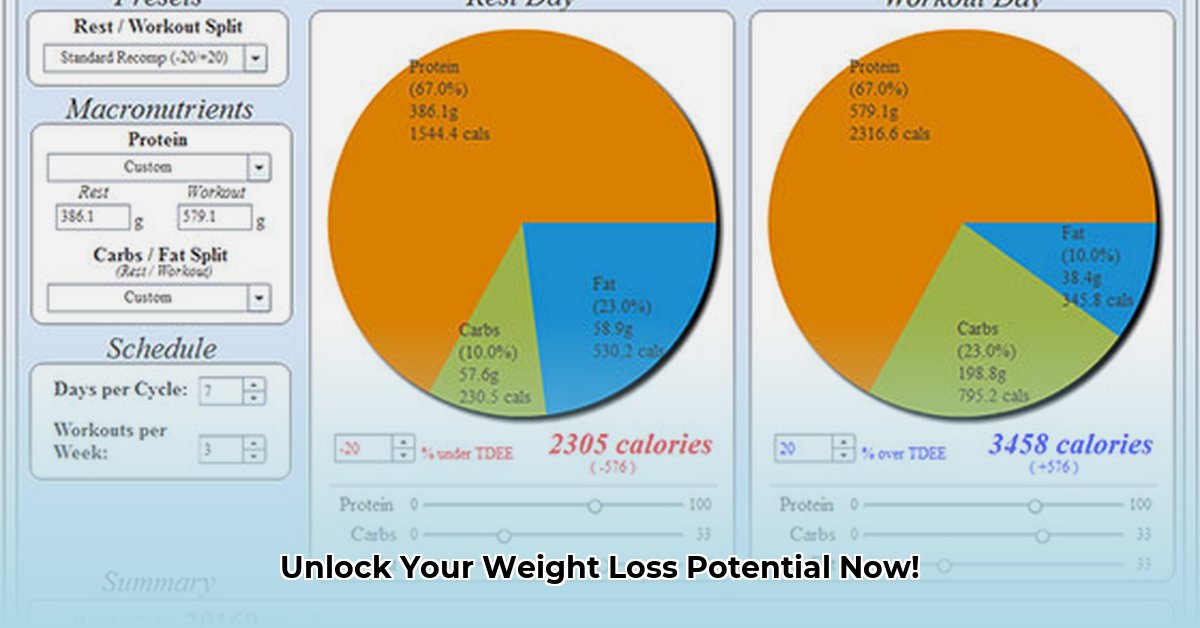
Thinking about intermittent fasting (IF) for weight loss? This guide explains how to use a free intermittent fasting calculator and provides crucial information about different IF methods, safety precautions, and long-term strategies. Remember, while a calculator can help, always consult your doctor before starting any new diet, especially if you have underlying health conditions.
Understanding Intermittent Fasting (IF)
Intermittent fasting (IF) is an eating pattern that cycles between periods of eating and voluntary fasting. It's not about what you eat, but when. By strategically limiting your eating window, IF can help reduce calorie intake and potentially lead to weight loss. Some studies also suggest IF may improve insulin sensitivity and other metabolic processes. However, IF isn't a magic bullet; it's most effective when combined with a balanced diet.
Is IF right for you? Let's explore the different methods and safety considerations.
Different Intermittent Fasting Methods
Several IF methods exist, each with its own approach:
- The 16/8 Method: Fast for 16 hours, eat within an 8-hour window. This is a popular starting point for many.
- The 5:2 Diet: Eat normally for five days, significantly restrict calories (around 500-600) on two non-consecutive days.
- Alternate-Day Fasting (ADF): Alternate between normal eating and a full fast. This is more intense and not generally recommended for beginners.
Each method has advantages and disadvantages. The best approach depends on your lifestyle and individual needs. Remember, consistency is key, regardless of the method chosen. Are you ready to personalize your IF journey?
Harnessing the Power of a Free Intermittent Fasting Calculator
A free intermittent fasting calculator simplifies IF planning. These online tools typically ask for your age, gender, weight, activity level, and weight loss goals. Based on this information, they generate a personalized plan.
Step-by-Step Guide:
- Find a Reputable Calculator: Search online for "free intermittent fasting weight loss calculator." Choose a calculator from a trusted source with positive reviews.
- Input Your Information Accurately: Be honest with your data for the most accurate results.
- Review the Generated Plan: Carefully examine the suggested eating and fasting schedules presented by the calculator.
- Personalize (as needed): The calculator's plan is a starting point. Adjust it to fit your lifestyle and preferences. Your comfort is paramount!
Important Note: Calculators are tools, not medical advice. Always consult your doctor before starting IF.
Safety Precautions and Nutritional Considerations
Before starting IF, consult your doctor, particularly if you have pre-existing conditions like diabetes, heart problems, or eating disorders.
Potential side effects may include initial fatigue, headaches, or dizziness. These often subside, but persistent or severe symptoms require medical attention. During your eating window, focus on nutrient-rich whole foods:
- Lean proteins: Fish, poultry, beans, lentils.
- Healthy fats: Avocados, nuts, olive oil.
- Complex carbohydrates: Whole grains, fruits, vegetables.
Avoid processed foods, sugary drinks, and excessive saturated fats. Hydration is crucial.
Building a Sustainable Intermittent Fasting Lifestyle
Long-term success with IF requires lifestyle changes. It's not a quick fix but a sustainable eating pattern.
- Gradual Implementation: Start slowly to avoid overwhelming your body.
- Mindful Eating: Pay attention to your hunger and fullness cues.
- Support System: Share your goals with family and friends for encouragement.
Remember, consistency and a balanced approach are vital for long-term health and weight management.
Is Intermittent Fasting Right for You?
Intermittent fasting offers potential benefits, but it's not for everyone. Your doctor can help determine if IF aligns with your health needs and lifestyle. Many tools are available, but always prioritize professional medical guidance for personalized health decisions. Remember, ongoing research continues to refine our understanding of intermittent fasting—stay informed!